1264 5th St NE, Washington, DC 20002
Listen to DJ Heat's "Off-Court Vibes" playlist. What you can find her listening to the most when she's not in game mode.
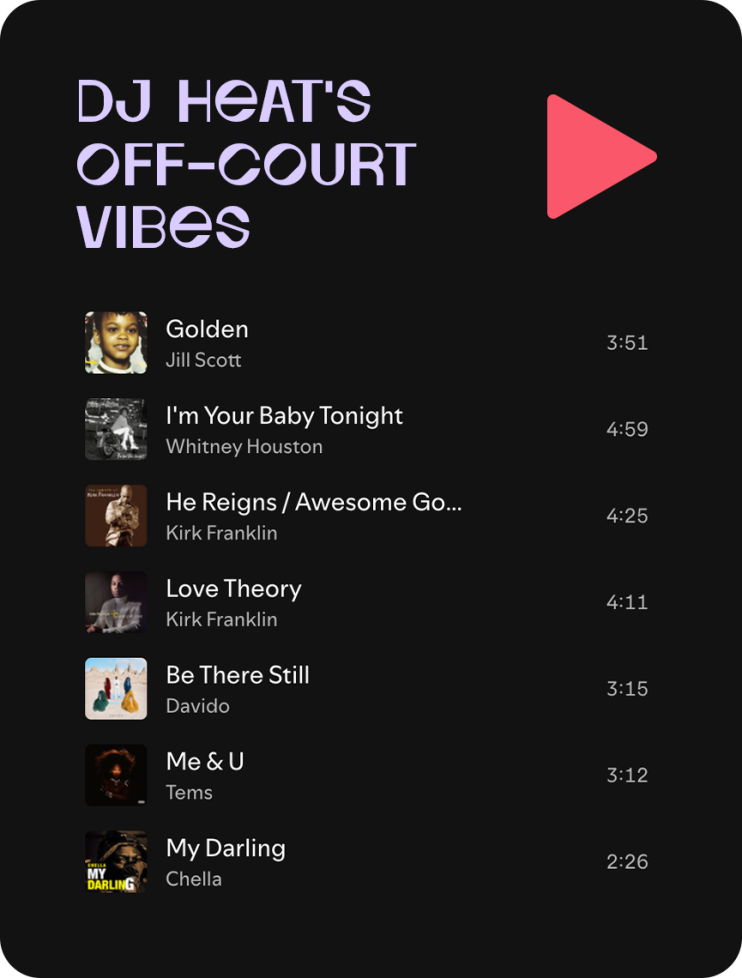
THANK YOU BYRDLAND RECORDS
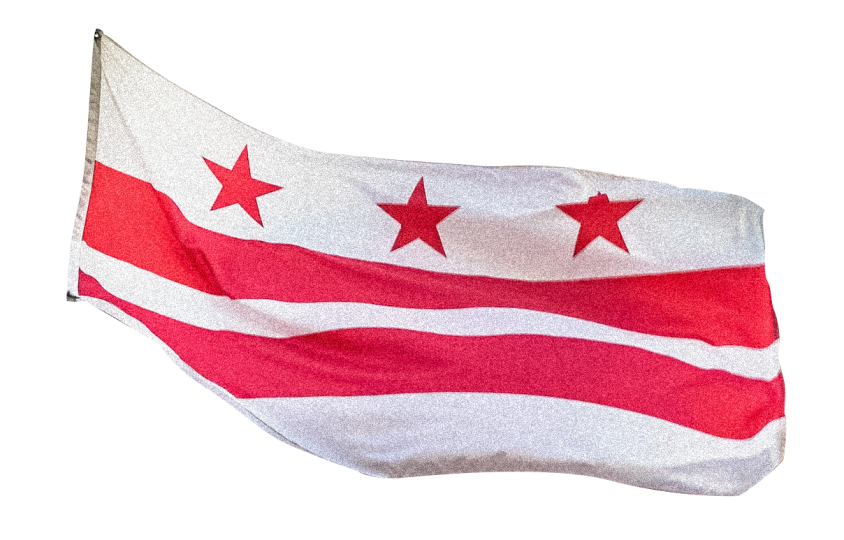
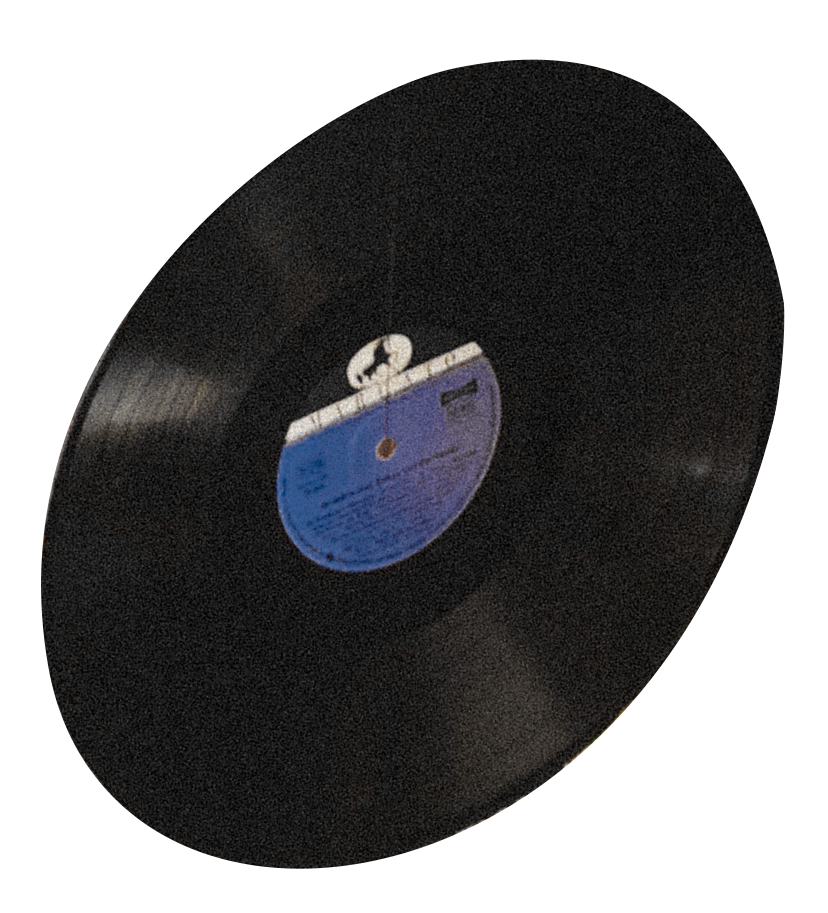
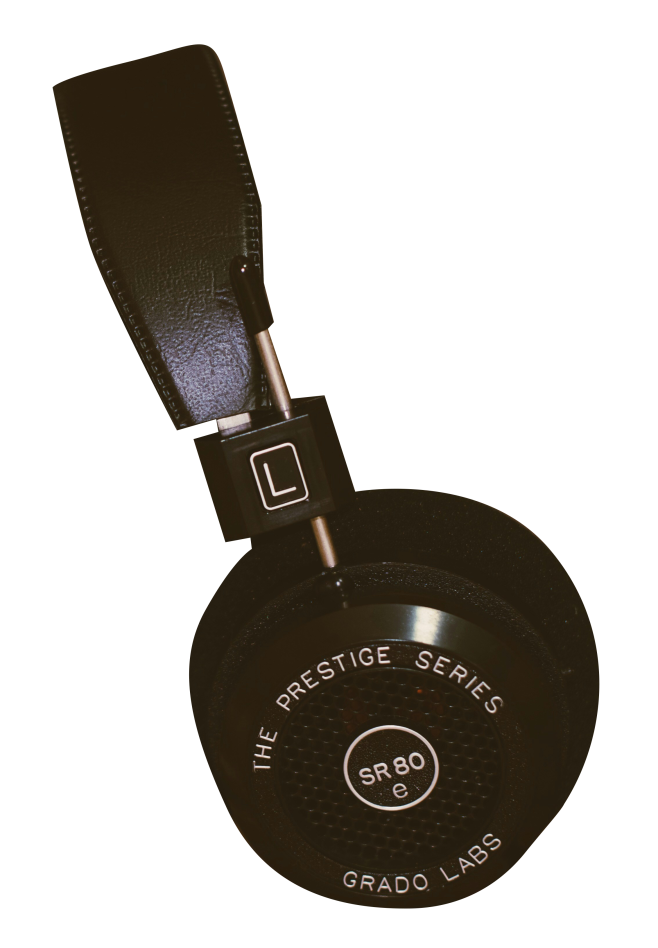
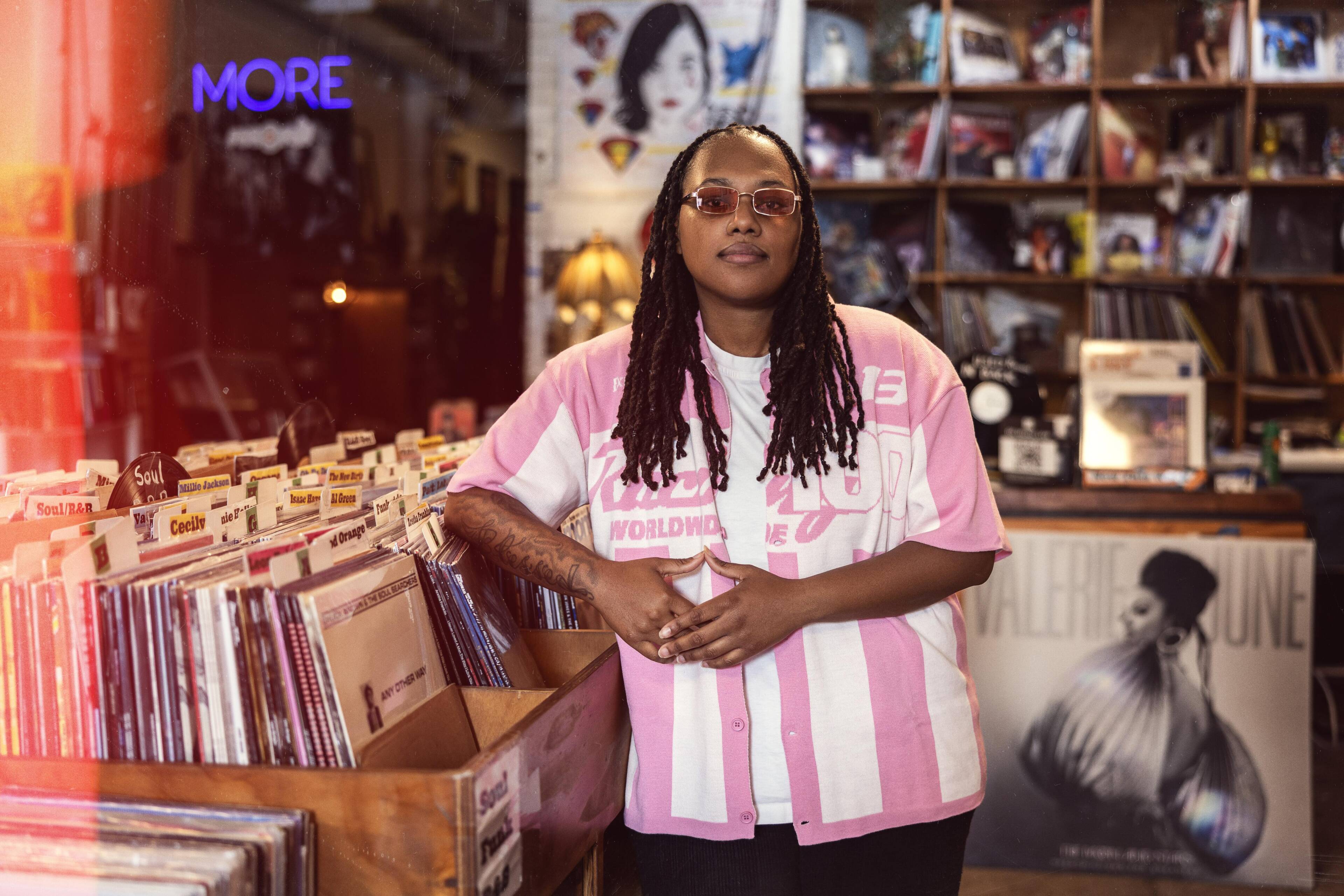
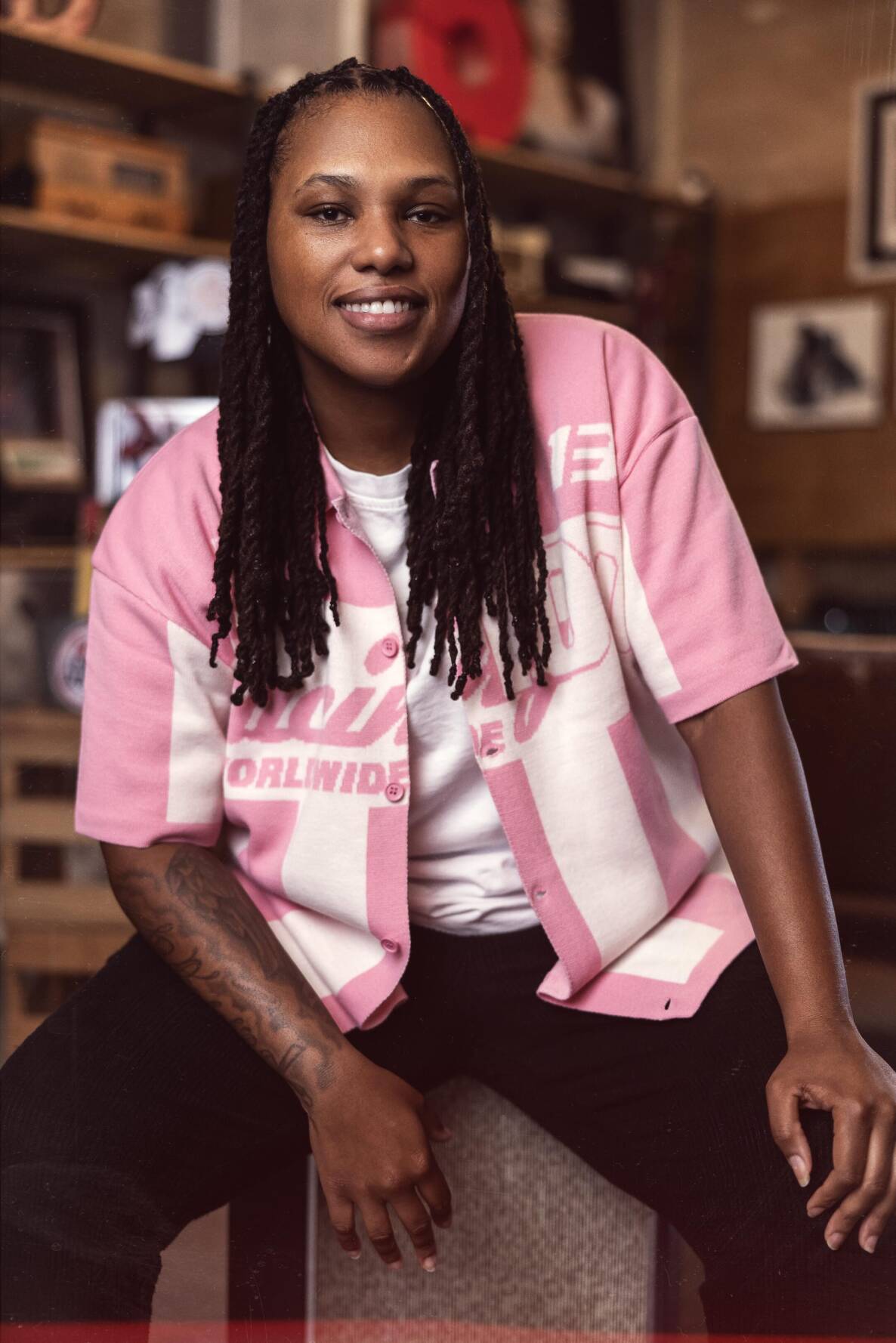
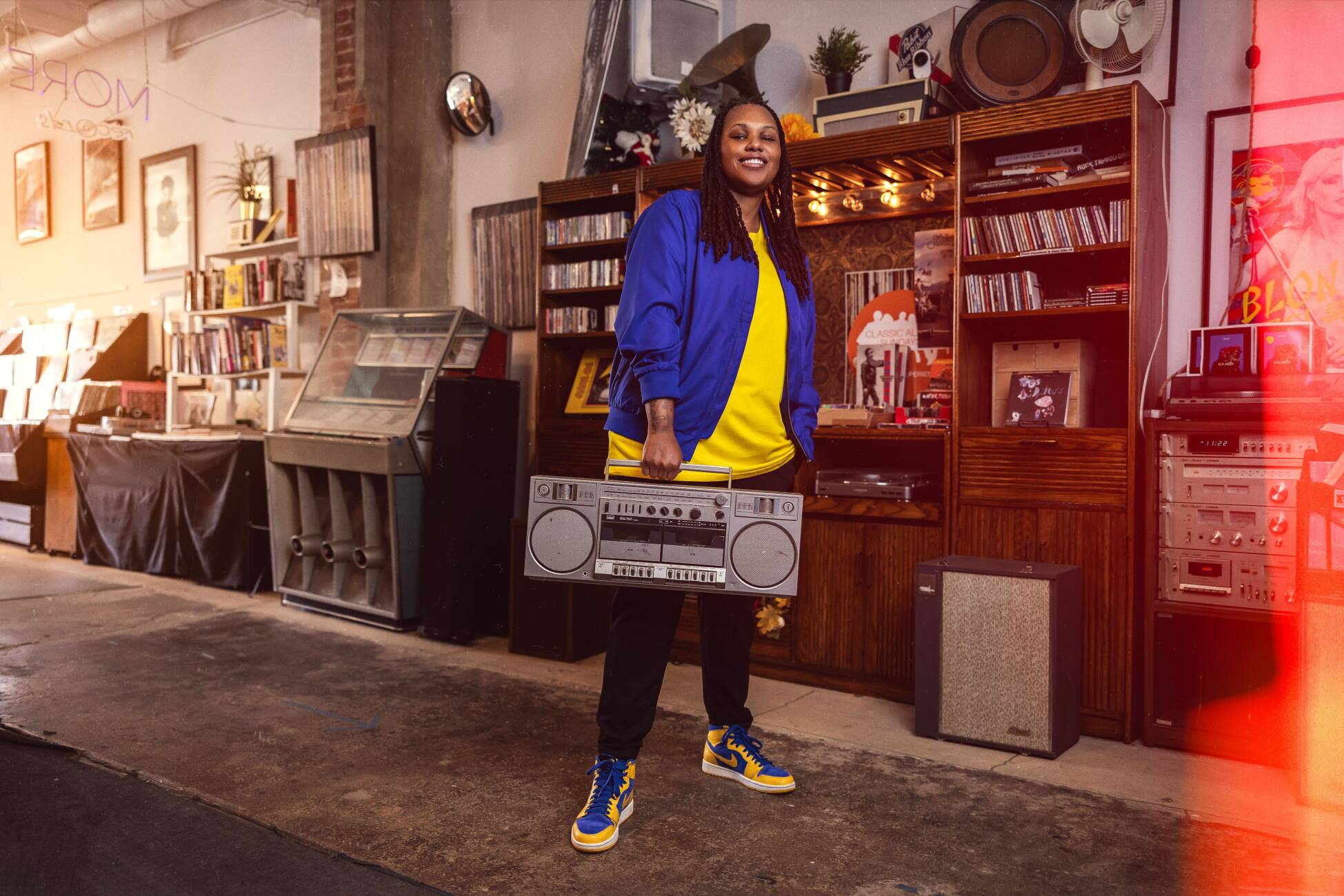
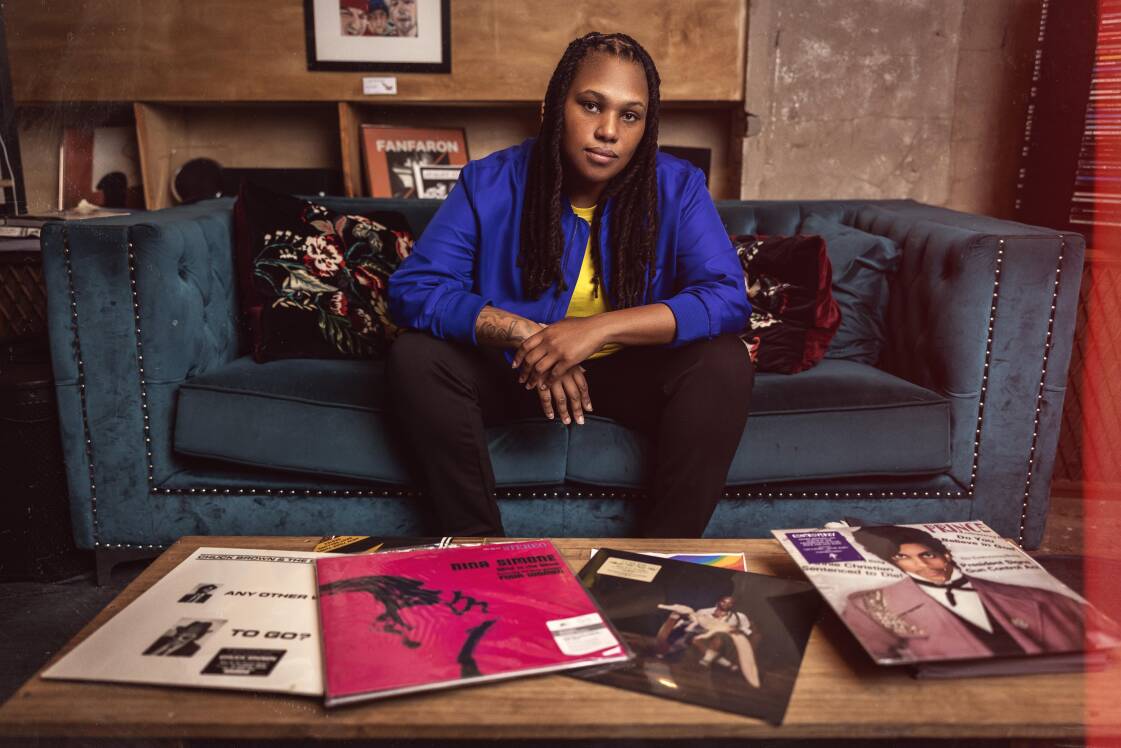
The Road to the Booth
From Southeast to the World
If you want to understand D.C., DJ Heat won’t send you to a monument or a museum. In true DJ fashion, she’ll send you to the music.
She said D.C.’s live music culture, rooted in the African diasporic sounds of go-go, make it unique from other music scenes she’s been a part of.
“People should really experience go-go with the community,” she says. “I’d take them to Sycamore & Oak, which has a lot of free go-go events. It’s beautiful to see and interact with people of all ages.”
She also points to Chuck Brown Day and the rooftop go-go series at the MLK Library.
“These are places where you can truly absorb and feel the love of D.C. and the love of go-go culture.”
Her path to the Mystics wasn’t easy. Before becoming the team’s resident DJ, she applied for the job not once, not twice, but four times.
“I know they say the third time is the charm,” she said, “but the fourth time was when I was truly ready.”
The first time she applied, in 2011, she remembers being asked questions she didn’t know how to answer. In both 2014 and 2015, folks sent her the opening and encouraged her to apply.
“I remember putting together an elevator pitch video that you had to submit through a private YouTube link,” she said. “I remember checking that link and the views never changed. I was like, man, they didn’t even look at it.”
But by 2017, she was ready. She’d gained experience, toured with R&B singer Mýa, and learned how to work crowds as both a DJ and an entertainer.
During her audition, she stood out not just for her mixes but for her energy.
“I was turned up and lit the whole time,” she says. “They told me later that it stood out. They liked that my energy was up, even when the other DJs were DJing.”
That month, she finally got the call she had been waiting on for six years.
Persistence, she says, is the lesson. It’s one she carries on her arm in the form of a tattoo of Dory from Finding Nemo with the words “Just keep swimming."
“It sounds cliché, but don’t give up. You can’t. Imagine if I gave up. Imagine if that fourth time I said, I’m not going to apply anymore. But now I’m nine years in.”
Her first apartment sat in Ward 8, right in Congress Heights, the same neighborhood where CareFirst Arena now stands. Those roots matter to her, especially because the communities she comes from are too often dismissed as not enough.
“I always like to say, it's Southeast to the world,” she said. “That's what motivates me to show other younger people coming up from Southeast and D.C. in general that, yeah, you can make it and do great things coming from where you come from.”
Nicole Mosley, better known by her stage name DJ Heat, feels nostalgic when she recalls the rhythms that underscored her childhood in the Hampton East neighborhood of Southeast D.C.
“I'm thinking of the sounds of my grandmother playing gospel station WYCB-AM on her old clock radio,” she says. “The sounds of our downstairs neighbor that was always playing Anita Baker. The sounds of extra long telephone cords hitting the ground from being used as double dutch ropes. Hampton East was home.”
“To paraphrase John Wall, I was thinking, I ain’t never ever, ever seen y’all act like this before!” she laughs. “It’s a new era for real. And I love it.”
As the Mystics usher in this new era, DJ Heat is the one setting the rhythm. And every time she steps into the booth, she brings with her the sounds, spirit, and culture of Washington, D.C.
If you ask DJ Heat what makes being part of the Mystics special, she doesn’t start with the music.
“My favorite part about being a Mystic is our fans. I love our fans,” she says. “Our fans are like family. They love on each other, they love on staff, players. You’re not going to get that anywhere else.”
This season, that bond has felt stronger than ever. At two summer games in late June, the crowd’s energy reached a level that caught even her off guard. Groups of fans shouted “brick” in unison with superfan JD, known around the arena as “Brick Guy.” Others stomped so loud the floor shook under the opposing team’s free throws.
1264 5th St NE, Washington, DC 20002
THANK YOU BYRDLAND RECORDS
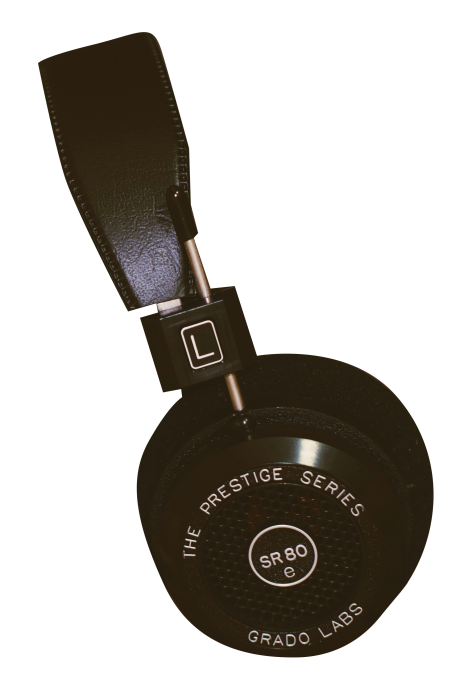
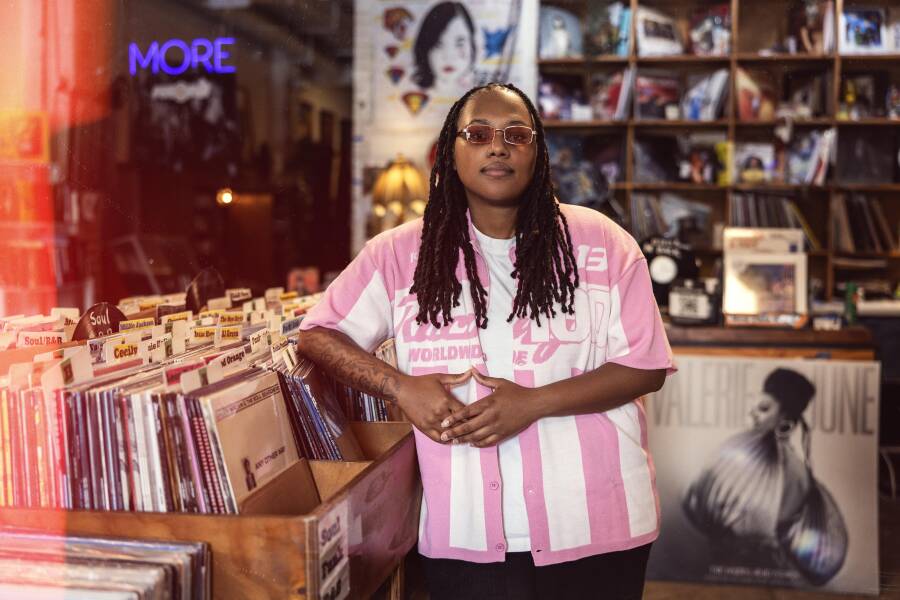
Her first apartment sat in Ward 8, right in Congress Heights, the same neighborhood where CareFirst Arena now stands. Those roots matter to her, especially because the communities she comes from are too often dismissed as not enough.
“I always like to say, it's Southeast to the world,” she said. “That's what motivates me to show other younger people coming up from Southeast and D.C. in general that, yeah, you can make it and do great things coming from where you come from.”
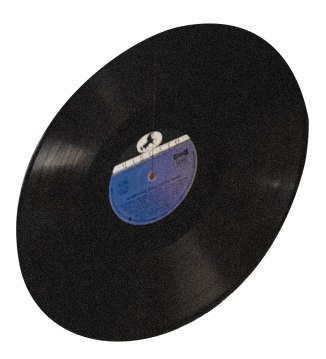
From Southeast to the World
If you ask DJ Heat what makes being part of the Mystics special, she doesn’t start with the music.
“My favorite part about being a Mystic is our fans. I love our fans,” she says. “Our fans are like family. They love on each other, they love on staff, players. You’re not going to get that anywhere else.”
This season, that bond has felt stronger than ever. At two summer games in late June, the crowd’s energy reached a level that caught even her off guard. Groups of fans shouted “brick” in unison with superfan JD, known around the arena as “Brick Guy.” Others stomped so loud the floor shook under the opposing team’s free throws.
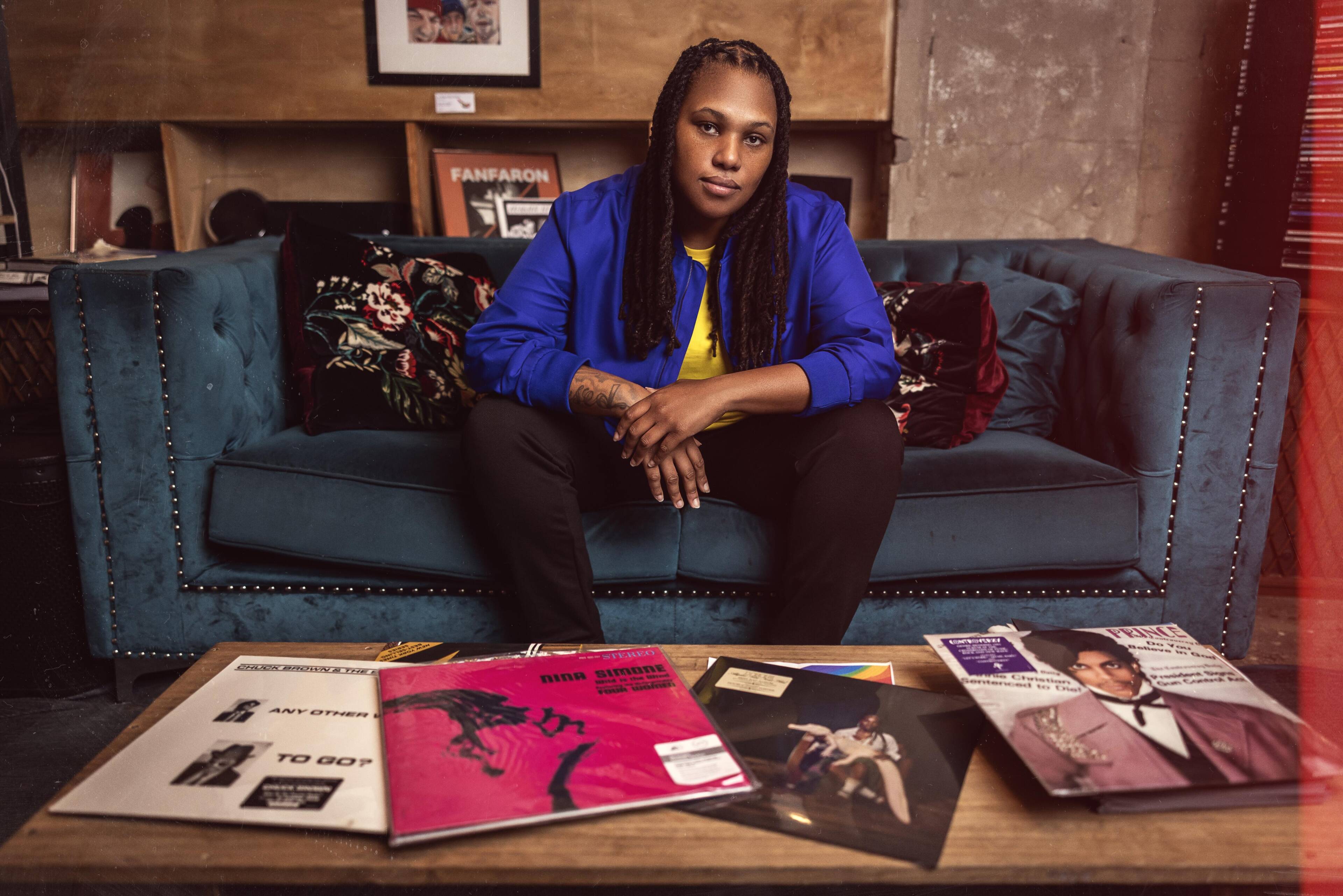
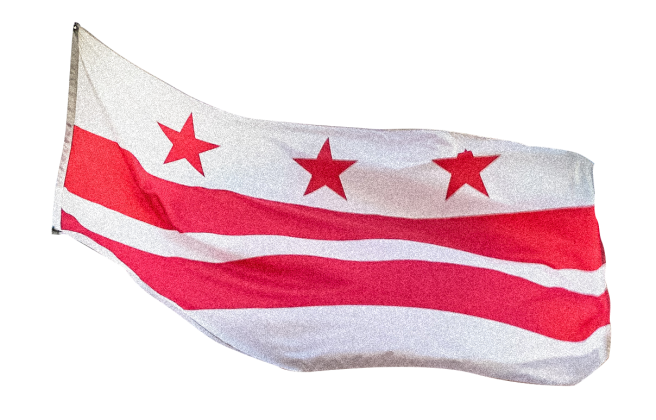
“To paraphrase John Wall, I was thinking, I ain’t never ever, ever seen y’all act like this before!” she laughs. “It’s a new era for real. And I love it.”
As the Mystics usher in this new era, DJ Heat is the one setting the rhythm. And every time she steps into the booth, she brings with her the sounds, spirit, and culture of Washington, D.C.
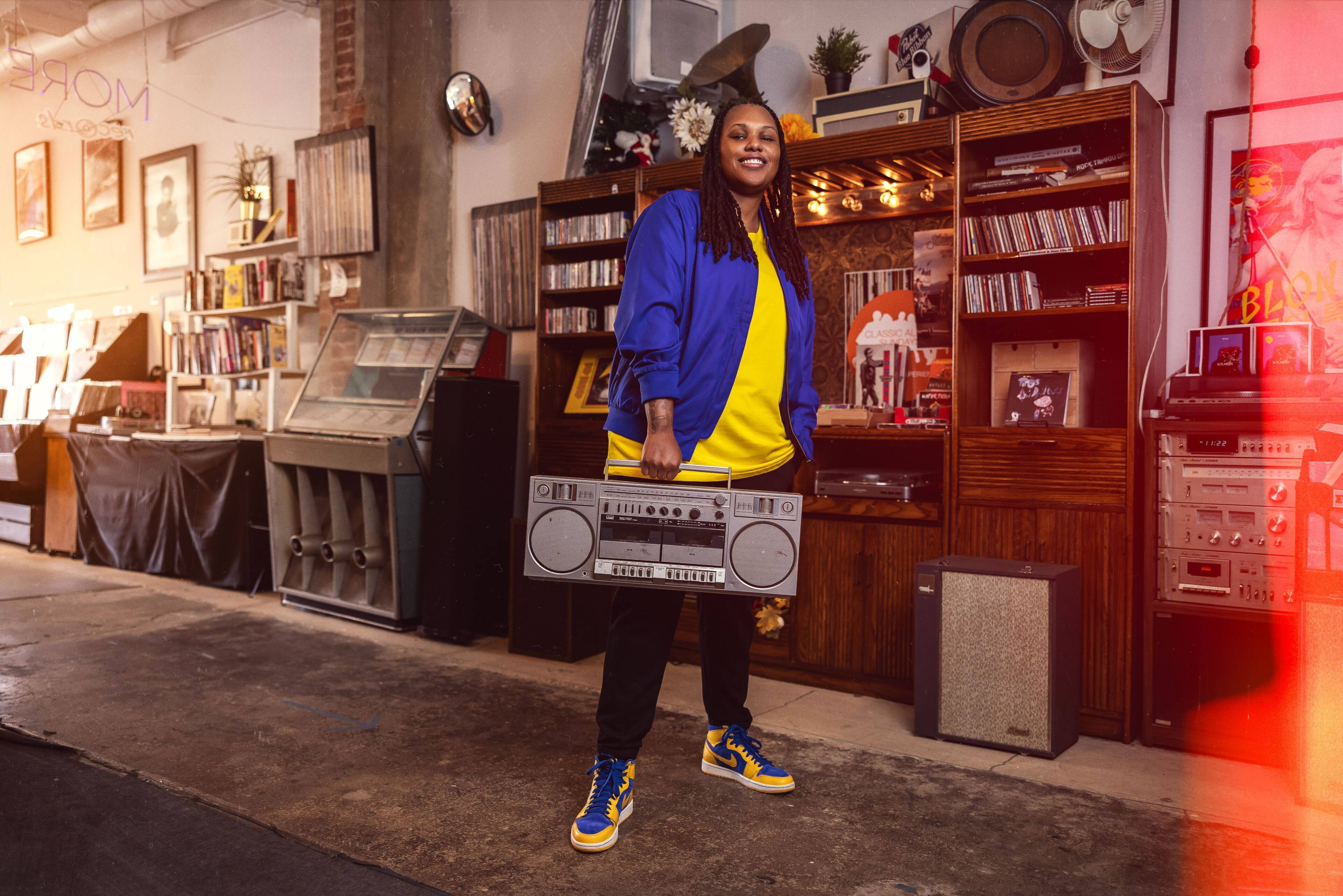
Her path to the Mystics wasn’t easy. Before becoming the team’s resident DJ, she applied for the job not once, not twice, but four times.
“I know they say the third time is the charm,” she said, “but the fourth time was when I was truly ready.”
The first time she applied, in 2011, she remembers being asked questions she didn’t know how to answer. In both 2014 and 2015, folks sent her the opening and encouraged her to apply.
“I remember putting together an elevator pitch video that you had to submit through a private YouTube link,” she said. “I remember checking that link and the views never changed. I was like, man, they didn’t even look at it.”
But by 2017, she was ready. She’d gained experience, toured with R&B singer Mýa, and learned how to work crowds as both a DJ and an entertainer.
During her audition, she stood out not just for her mixes but for her energy.
“I was turned up and lit the whole time,” she says. “They told me later that it stood out. They liked that my energy was up, even when the other DJs were DJing.”
That month, she finally got the call she had been waiting on for six years.
Persistence, she says, is the lesson. It’s one she carries on her arm in the form of a tattoo of Dory from Finding Nemo with the words “Just keep swimming."
“It sounds cliché, but don’t give up. You can’t. Imagine if I gave up. Imagine if that fourth time I said, I’m not going to apply anymore. But now I’m nine years in.”
The Road to the Booth
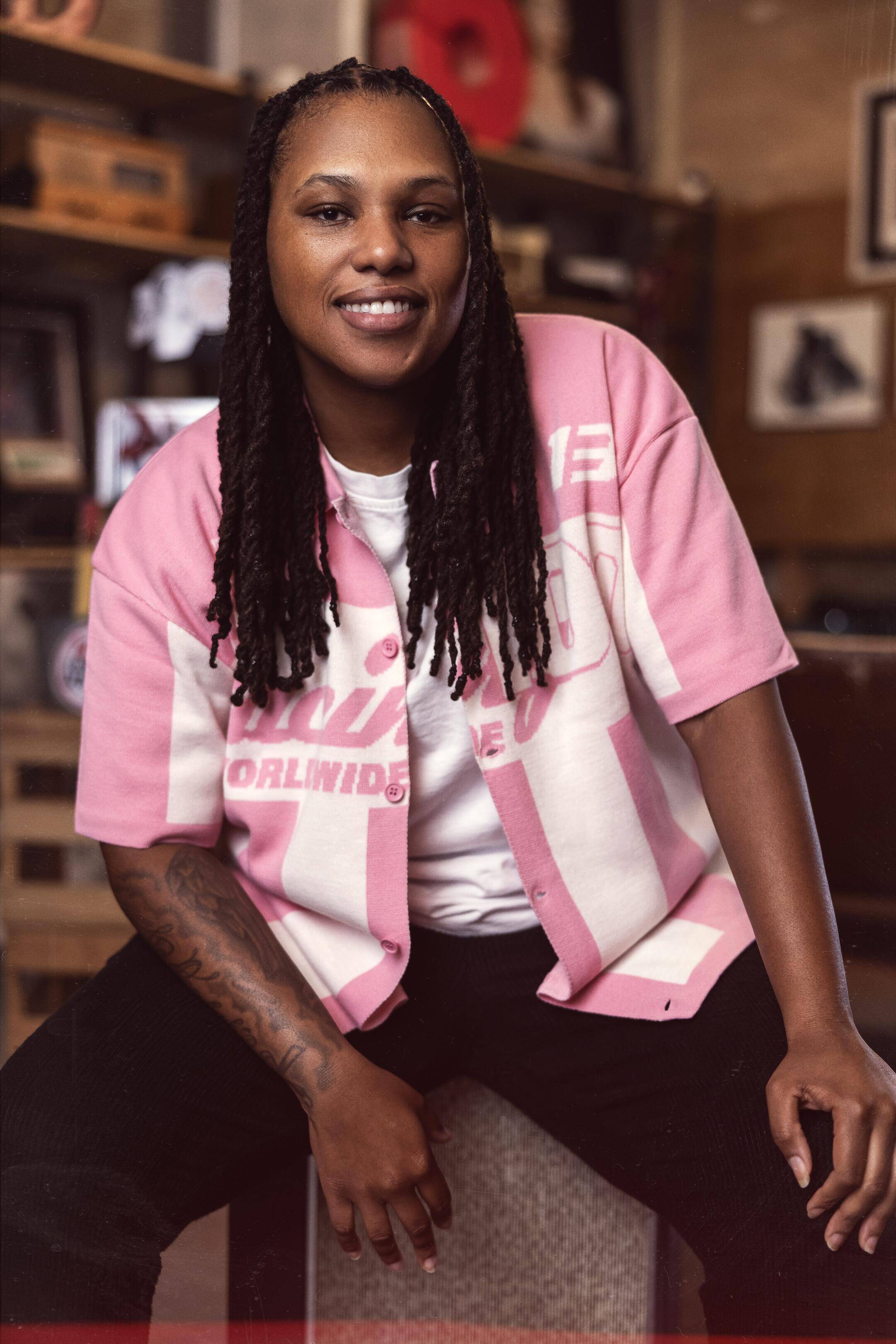
If you want to understand D.C., DJ Heat won’t send you to a monument or a museum. In true DJ fashion, she’ll send you to the music.
She said D.C.’s live music culture, rooted in the African diasporic sounds of go-go, make it unique from other music scenes she’s been a part of.
“People should really experience go-go with the community,” she says. “I’d take them to Sycamore & Oak, which has a lot of free go-go events. It’s beautiful to see and interact with people of all ages.”
She also points to Chuck Brown Day and the rooftop go-go series at the MLK Library.
“These are places where you can truly absorb and feel the love of D.C. and the love of go-go culture.”
Listen to DJ Heat's "Off-Court Vibes" playlist. What you can find her listening to the most when she's not in game mode.
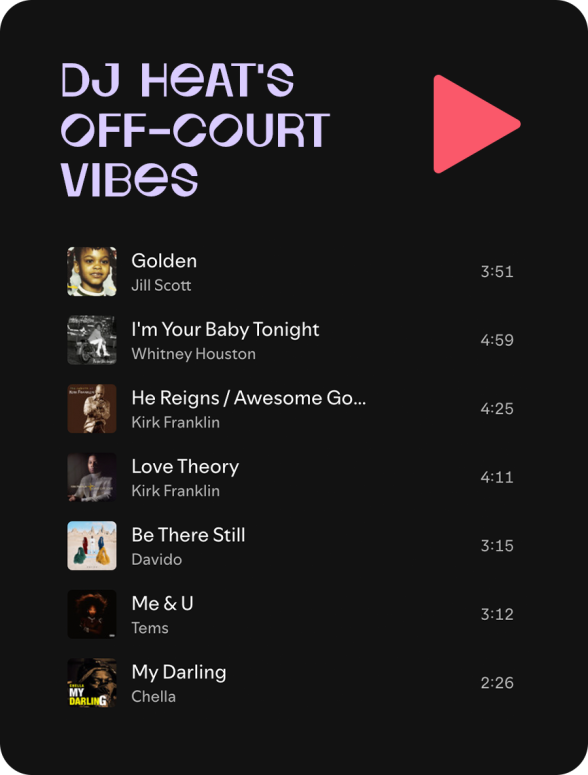
Nicole Mosley, better known by her stage name DJ Heat, feels nostalgic when she recalls the rhythms that underscored her childhood in the Hampton East neighborhood of Southeast D.C.
“I'm thinking of the sounds of my grandmother playing gospel station WYCB-AM on her old clock radio,” she says. “The sounds of our downstairs neighbor that was always playing Anita Baker. The sounds of extra long telephone cords hitting the ground from being used as double dutch ropes. Hampton East was home.”